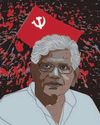
Delhi is well past its Covid-19 peak. The peak had come in June, when a deluge of cases had exposed an acute shortage of hospital beds and testing kits. The prognosis looked grim: Cases were expected to surge to five lakh by the end of July.
By August, though, the state government had turned things around. The test positivity rate, which stood at 31.66 per cent on June 14, fell to around 6 per cent two months later. A high positivity rate indicates that only the potentially sick are being tested; a low positivity rate points to the slowdown of the spread.
The slowdown in Delhi has been significant. On September 1, it reported 2,312 new cases, up from the seven-day average of 1,855, but well below the peak in June (3,947 cases). With 14,626 patients, Delhi is now fourteenth among states in terms of the number of active cases. There have been 1.77 lakh cases and nearly 4,500 deaths.
“Things changed when the focus shifted from providing only tertiary care to giving primary-level care for those with mild disease,” says Dr K. Srinath Reddy, president, Public Health Foundation of India. “The strategy of segregating people with mild symptoms for home isolation, providing them pulse oximeters and thermometers, and following up with them worked.”
The involvement of AYUSH medical practitioners helped preempt shortage of manpower. “Kerala, for instance, involved only allopathic doctors initially, giving rise to a shortage. In Delhi, AYUSH doctors have been involved, since April 14, in testing centres, Covid care centres and even hospitals,” says Dr Amar Bodhi R., associate professor at the Delhi government’s Dr B.R. Sur Homoeopathic Medical College and Research Centre.
This story is from the {{IssueName}} edition of {{MagazineName}}.
Start your 7-day Magzter GOLD free trial to access thousands of curated premium stories, and 9,000+ magazines and newspapers.
Already a subscriber ? Sign In
This story is from the {{IssueName}} edition of {{MagazineName}}.
Start your 7-day Magzter GOLD free trial to access thousands of curated premium stories, and 9,000+ magazines and newspapers.
Already a subscriber? Sign In

Themes Of Choice
As Savvy Investors Seek New Avenues, Thematic Mutual Funds Are Gaining Popularity

A golden girl
One of India's most formidable beauties passed away earlier this month. The odd thing is she would absolutely hate this obituary; she hated being written about and avoided publicity for all of her nine decades. Indira Aswani was 93 when she died. But anyone who encountered her, even briefly, was in such awe of her grace and poise, and one could not but remember her forever.

The interest in wine is growing delightfully in India
The renowned British wine writer and television presenter Jancis Robinson, 74, recently came to Delhi and Mumbai to reacquaint herself with India's wine industry. This was the Robinson's fourth visit to India; the last one was seven years ago. On this trip, Robinson and her husband, restaurateur Nicholas Lander, were hosted by the Taj Hotels and Sonal Holland, India's only Master of Wine.

United in the states
Indian-Americans coming together under the Democratic umbrella could get Harris over the line in key battlegrounds

COVER DRIVE
Usage-driven motor insurance policies offer several benefits

GDP as the only measure of progress is illogical
Dasho Karma Ura, one of the world's leading happiness experts, has guided Bhutan's unique gross national happiness (GNH) project. He uses empirical data to show that money cannot buy happiness in all circumstances, rather it is family and health that have the strongest positive effect on happiness. Excerpts from an interview:

India is not a controlling big brother
Prime Minister Tshering Tobgay considers India a benevolent elder sibling as the \"big brotherly attitude\" is happily missing from bilateral ties. He thinks the relationship shared by the two countries has become a model of friendship not just for the region, but for the entire world. \"India's attitude is definitely not of a big brother who is controlling and does not allow the little brother to blossom and grow,\" says Tobgay in an exclusive interview with THE WEEK.

Comrade with no foes
Lal Salaam, Comrade Yechury-you were quite a guy!

Pinning down saffron
In her first political bout, Vinesh Phogat rides on the anti-BJP sentiment across Haryana

MAKE IN MANIPUR
Home-made rockets and weapons from across the border are escalating the conflict